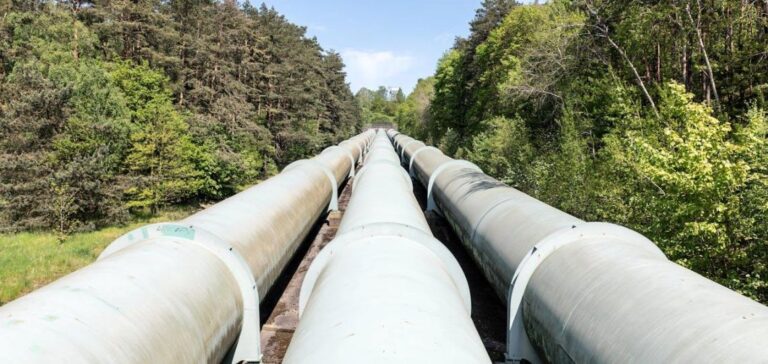Ukraine has the largest gas storage capacity in Europe, estimated at approximately 31 billion cubic meters (Bcm). These facilities have historically attracted European players looking to store excess gas. However, the situation changed in 2024, marked by a significant drop in the volume of gas stored by foreign companies due to the ongoing conflict.
Reduced attractiveness due to security concerns
In the spring of 2024, several Ukrainian storage sites were targeted by missile and drone strikes, leading European traders to withdraw. According to former CEO of gas transmission operator GTSOU, Sergiy Makogon, security concerns contributed to a collapse in the volume of foreign-stored gas. While non-resident companies stored 2.5 Bcm of gas in 2023, these levels became negligible in 2024.
This situation was exacerbated by the reduced profitability of storage, due to a narrower spread between summer and winter gas prices. The evolving dynamics of the European market have thus lowered the incentive for companies to store gas in Ukraine.
UkrTransGaz bets on European market integration
In this context, UkrTransGaz is working to restore investor confidence and reaffirm Ukraine’s role in the European gas market. The company has emphasized its commitment to improving the efficiency of its storage infrastructure while seeking to strengthen cooperation with international partners.
In a statement published on February 4, the operator highlighted the necessity of attracting foreign customers and optimizing the performance of its facilities. Integration into the European market remains a strategic priority, with the goal of maximizing the utilization of available storage capacity.
Sufficient stocks but underutilized capacity
Despite the reduction in foreign deposits, state-owned energy company Naftogaz has assured that Ukraine has sufficient reserves to cover its winter needs. Data from Gas Infrastructure Europe (GIE) indicated that as of February 3, Ukrainian working gas stocks stood at 34.4 terawatt-hours (TWh), or about 3.2 Bcm. This represents just over 10% of the country’s total capacity.
However, projections for the 2025-2026 winter highlight a major challenge: the need to import up to 3 Bcm to replenish reserves, according to Sergiy Makogon. Ukraine is therefore striving to balance its domestic production with its import needs while limiting reliance on European markets, where prices remain high.
A gas sector under pressure
Despite a difficult environment, Ukrainian gas production increased in 2024, reaching 19.1 Bcm compared to 18.7 Bcm in 2023. This growth reflects Kyiv’s efforts to strengthen its energy autonomy. However, infrastructure remains vulnerable to attacks. On January 15, a large-scale assault targeted energy sites, affecting storage facilities.
The resilience of Ukraine’s gas network and its ability to secure its infrastructure will be key factors in attracting European players back. UkrTransGaz is relying on technical guarantees and better integration into European market dynamics to convince companies to return.






















